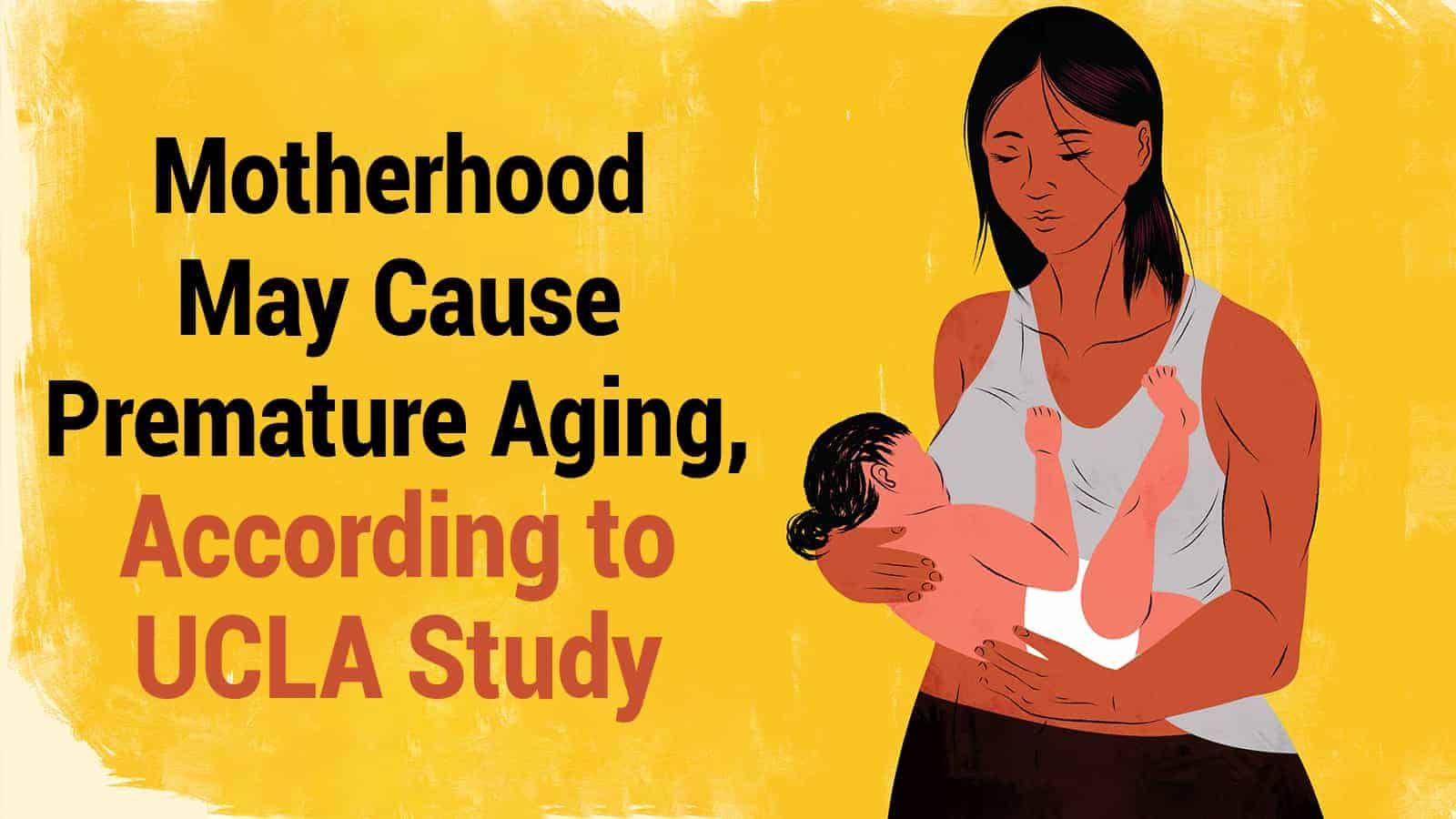Most new mothers expect to lose sleep caring for their newborns. But, unfortunately, this can lead to premature aging. A new UCLA study reveals that sleep deprivation during motherhood may actually shave a few years off their life.
Scientists studied 33 women between the ages of 23 and 45 during their pregnancies and their first year of motherhood. They analyzed the women’s DNA using blood samples to determine their “biological age.”
This can number differ from chronological age because it takes into account other factors than just your birthday. For example, genetics, lifestyle, diet, and diseases or illnesses contribute to one’s biological age.
After compiling this data, scientists determined the women’s biological age one year after giving birth. The mothers who got less than seven hours of sleep per night at the six-month mark showed signs of premature aging. They had a biological age of three to seven years older than those who slept for seven or more hours per night. The results of the UCLA research were published this summer in the journal Sleep Health.
What’s more, the researchers discovered that mothers who slept less than seven hours had shorter telomeres in their white blood cells. Telomeres are tiny pieces of DNA at the ends of chromosomes and resemble the plastic tips on shoelaces. They help protect DNA molecules, preventing the ends of chromosomes from fraying or sticking together. When telomeres shorten, it can heighten cancer and cardiovascular disease risk along with earlier death.
“The early months of postpartum sleep deprivation could have a lasting effect on physical health,” said the study’s first author, Judith Carroll, UCLA’s George F. Solomon Professor of Psychobiology. “We know from a large body of research that sleeping less than seven hours a night is detrimental to health and increases the risk of age-related diseases.”
Motherhood links to premature aging, according to a new study
Throughout the study period, participants slept anywhere from five to nine hours per night. However, over half of the women got less than seven hours at the six-month and one-year marker.“We found that with every hour of additional sleep, the mother’s biological age was younger,” said Carroll, a member of the Cousins Center for Psychoneuroimmunology at UCLA’s Jane and Terry Semel Institute for Neuroscience and Human Behavior. “I, and many other sleep scientists, consider sleep health to be just as vital to overall health as diet and exercise.”
How to lessen these impacts of premature aging:
So, by attempting to get a little more shuteye each night, new mothers can slow down premature aging. Carroll encouraged new mothers to take advantage of any opportunities to catch up on sleep, including:
- taking daytime naps while their baby sleeps
- reaching out to friends and/or family for assistance
- asking their partner to help with the baby during the night or early morning
“Taking care of your sleep needs will help you and your baby in the long run,” she said.
Co-author Christine Dunkel Schetter, a distinguished professor of psychology and psychiatry at UCLA, said this research “and other findings on maternal postpartum mental health provide impetus for better supporting mothers of young infants so that they can get sufficient sleep — possibly through parental leave so that both parents can bear some of the burden of care, and through programs for families and fathers.”
However, she added that new mothers shouldn’t worry too much about premature aging from sleep loss. Accelerated biological aging may pose some health risks, but it doesn’t cause immediate harm to their bodies.
“We don’t want the message to be that mothers are permanently damaged by infant care and loss of sleep,” she emphasized. “We don’t know if these effects are long-lasting.”
Premature aging stems from damage to codes in DNA
The study’s authors utilized the most current scientific methods of observing alterations in DNA to determine biological age. Also known as epigenetic aging, this occurs when specific regions of the codes within DNA become inaccessible. DNA provides codes for making proteins, which carry out vital functions in the body.
“You can think of DNA as a grocery store,” Carroll said, “with lots of basic ingredients to build a meal. If there is a spill in one aisle, it may be closed, and you can’t get an item from that aisle, which might prevent you from making a recipe. When access to DNA code is ‘closed,’ then those genes that code for specific proteins cannot be expressed and are therefore turned off.”
Since premature aging causes certain areas within the DNA to “turn off,” Carroll says this process acts as a sort of clock. This helps scientists estimate individuals’ biological age; the greater the epigenetic age, the higher their disease and early mortality risk.
Since the study’s cohort involved a small sample of women, the authors suggest additional studies to draw definite conclusions. Future studies using a large representative sample may uncover more information about the long-term ramifications of sleep loss during motherhood. They may also assess other factors contributing to sleep loss and whether premature aging effects can be reversed.
In a prior study, Carroll and Dunkel Schetter reported that a mother’s pre-birth stress might accelerate her child’s premature aging. This constitutes a type of “intergenerational transfer of health risk,” Dunkel Schetter said.
Other ways to slow down premature aging besides getting more sleep
- Engage in strength training and endurance exercises at least a few times per week
- Maintain a healthy diet including whole foods like lean meats, dairy, nuts, grains, fruits, and veggies
- Keep your stress low by exercising and performing relaxation techniques like yoga or meditation
Final thoughts on a study linking sleep loss during motherhood to premature aging
Most mothers out there can attest to the exhaustion that comes with raising a child. While having a baby brings great joy as well, it requires immense sacrifice. Many new mothers lose hours of sleep a night caring for their child, accelerating premature aging. However, the UCLA study says that long-term effects of sleep loss during motherhood have yet to be determined. By taking naps or asking for help with the baby, mothers can get extra sleep, perhaps offsetting the negative effects of nighttime sleep loss.
















 Community
Community

